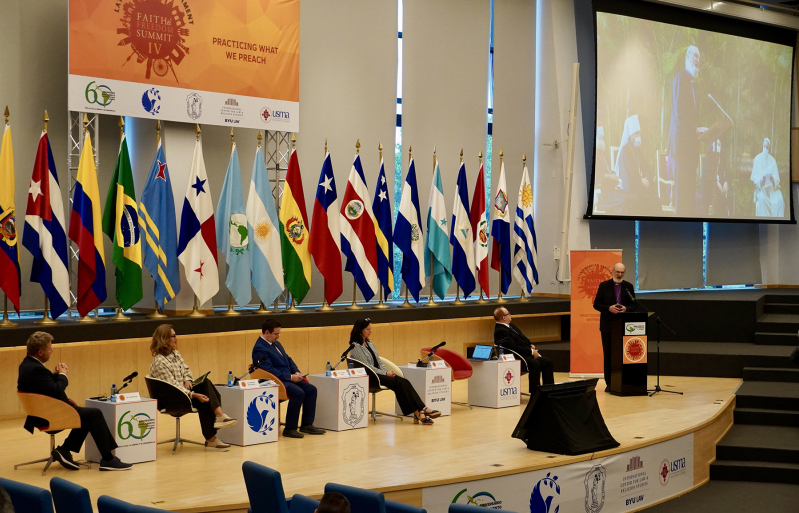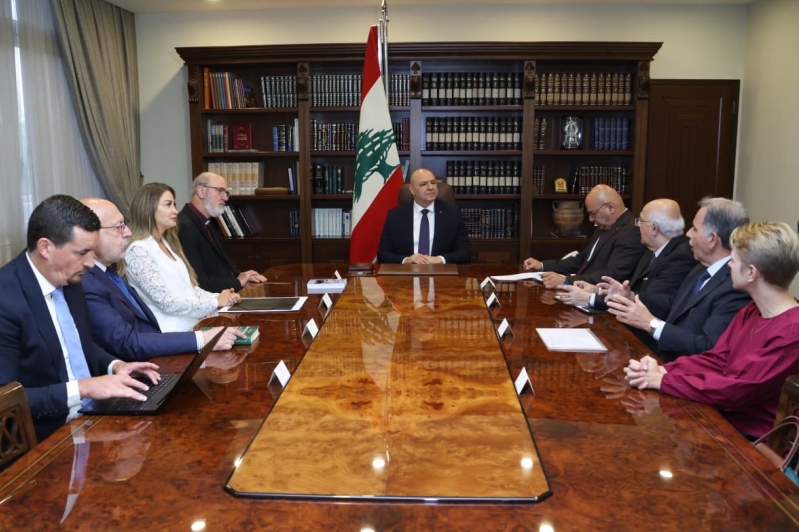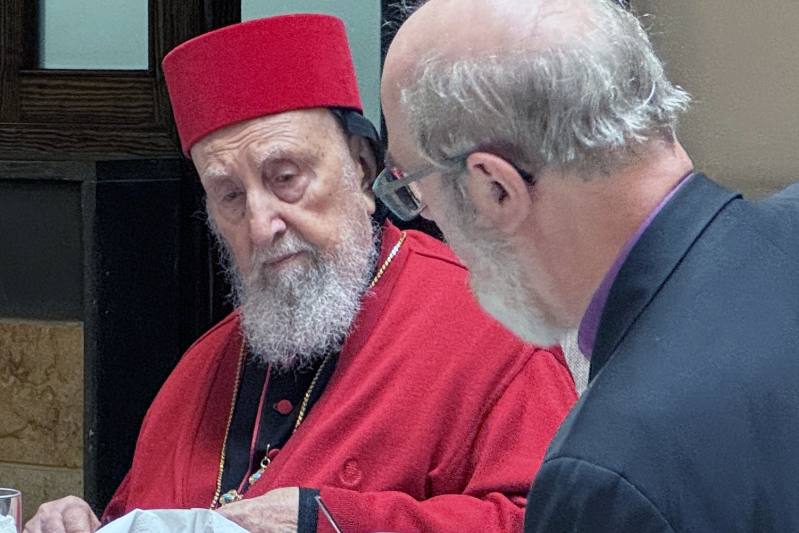Amid growing concerns about global violations of religious freedom, former World Evangelical Alliance (WEA) general secretary Bishop Dr. Thomas Schirmacher has warned that major Christian networks are retreating from defending the persecuted church.
In an interview with Christian Daily International after the launch of the German Yearbook on Religious Freedom, a joint publication of the International Society for Human Rights (ISHR) and the International Institute for Religious Freedom (IIRF), Schirmacher said that the world church’s systematic efforts in prayer and advocacy are in decline.
“I don’t know how many people pray or what the beliefs of the world’s denominations are,” he says. “But we are seeing a decline in organized prayer and advocacy by global networks, including churches and evangelical networks.”
He pointed to a decline in donations and a decline in solidarity with persecuted Christians. “Church leaders in countries of concern have told me during my visits that they feel that the interest in them is 10 years old, whether it is the Syrian Catholic Patriarch of Lebanon, the evangelical leaders of Mali or Gambia, or the Syriac Orthodox Patriarch of Syria,” he added. “Major advocacy groups and NGOs focused on religious freedom continue to do great work, but we have seen a significant decline in recent years.”
Global campaign visibility is lost
Schirmacher highlighted several examples of this decline. The International Day of Prayer for the Persecuted Church (IDOP), once a globally unified effort, said its “website has no information for 2024 or 2025,” pointing to an apparent hiatus in its long-running campaign.
“Thankfully, several NGOs are providing materials to local churches for November 2, 2025,” he said. “Ten years ago, IDOP was the primary tool for uniting churches around the world in prayer.”
The World Evangelical Alliance’s Religious Freedom Committee, which previously played a central role in advocacy efforts, “no longer exists,” he said. Similarly, “the World Council of Churches no longer employs full-time staff to address this issue.”
Schirmacher said the Catholic Church maintains an advantage through its network of papal legates, but it outsources much of its aid work to groups such as Aid to Churches in Need, rather than coordinating efforts through the Vatican itself.
Evangelical advocacy becomes more independent
When asked if evangelical organizations are still active, Schirmacher acknowledged that many continue to operate effectively, but are becoming increasingly disconnected from denominational structures.
“Overall, the ties with evangelical denominations are loosening and growing into a more ecumenical network,” he said. “For example, the Institute for International Religious Freedom, of which I am honorary president, has significantly strengthened its activities under the young director who took over from me and Christoph Sauer in 2021.”
He said IIRF is “currently completely independent of any church network” and is a “world leader in advocating for religious freedom for all religions,” although this broad mission “is not supported by all churches.”

He also praised the role of Christian Daily International in spreading stories of persecution. “Information about incidents of persecution of Christians is spreading around the world faster than ever before, especially through the active involvement of Christian Daily International on all continents,” he said. “However, CDI is completely independent and run by individuals who want this topic to be on their daily agenda.”
A personal journey to recovery and new mission
Reflecting on his absence from official duties, Schirmacher said health issues forced him to step back from his leadership role.
“I wrote my first booklet on persecution when I was still a seminary student, and since then this topic has been a priority in my life,” he said. “When I contracted COVID-19 and developed long-term symptoms, I experienced what is called ‘brain fog’ and was unable to interact with other people most days.”
He will step down as WEA secretary-general in March 2024, saying it is “too late” to do so. “I accepted that it came from God’s hand and thought I had done my part in God’s kingdom,” he said. “But I was struggling with the fact that my work against persecution was over.”
Experts in California and Israel subsequently diagnosed and treated the condition, and he recovered. “My strength returned and my symptoms started to go away,” he said. “In 2025, I traveled again and met with governments, witnesses and churches in more than 50 countries. I knew that helping the persecuted church and fighting for freedom of religion and belief must once again become a priority in my life.”
But upon returning to the global stage, he was “shocked” by what he found. “The ecumenical consensus to fight discrimination and persecution seemed to have disappeared,” he said.

The “ecumenical consensus” has been lost.
Schirmacher recalled a pivotal moment of unity at the 2015 World Christian Forum (GCF) conference in Tirana, Albania.
“Representatives from the Vatican, the World Council of Churches, the World Evangelical Alliance and the Pentecostal World Fellowship met to discuss discrimination, persecution and religious freedom,” he said. “After hearing the views of witnesses from 50 countries, we agreed to cooperate closely on this issue from that point forward.”
Ten years later, he said, “Nothing has come of this issue. The GCF is no longer working on this issue and there is no formal cooperation on this issue between the four organizations behind it.”
He also pointed to the 2011 joint document “Christian Witness in a Multireligious World” signed by the Vatican, WCC and WEA as a milestone that has since been ignored. “The period from 2006 to 2011 was the most exciting period of my life,” he said. “The Vatican and the WCC continue to emphasize its importance, but evangelicals have more or less forgotten about it.”
Fragmented reactions and “anti-ecumenical” tendencies
Schirmacher said the decline was due to growing anti-ecumenical sentiment in many church circles.
“Ten years ago, martyrdom took precedence over theological debate, and it was taken for granted that the enemies of Jesus Christ would not distinguish between churches,” he says. “But today it seems like Catholics are helping Catholics and evangelicals are helping evangelicals.”
He pointed out that even evangelicals who claim to be ready to cooperate with Catholics and Orthodox believers on humanitarian issues rarely do so in practice. “Other than NGOs and individuals like me bridging the gap, there is little meaningful international cooperation in advocacy,” he says.
“Recently, I visited the Vatican, where I was welcomed by Nicaraguan bishops and priests who we helped free from prison,” he added. “For many evangelicals, this was further evidence of my overly ecumenical position as an evangelical.”
He expressed the hope that the Pentecostal World Fellowship might strengthen that engagement. “I’m glad they are leveling the situation, but I would like to see them set up a proper office to work directly with the government and the media,” he said. “This is not a job that only freelancers can do.”
On earth, I feel gratitude that cannot be expressed in words.
Sharing insights from his recent travels, Mr. Schirmacher cited the Kurdistan Region as a positive example of a Muslim-majority region protecting religious minorities.

“We recently visited the autonomous Kurdish region, which has become a safe haven for many Christians and other religious minorities who are persecuted in neighboring countries,” he said. “We met with pastors, archbishops, evangelical leaders, leaders of several faiths, and also visited refugee camps.”
Evangelical groups such as Samaritan’s Purse and more than a dozen other humanitarian groups operate there, but “they have never heard of the WEA, the Lausanne Movement, the Pentecostal World Fellowship, the World Council of Churches, or the World Christian Forum,” he said.
“I am not aware of any expression of gratitude from these organizations regarding the Kurdish autonomous region,” he added.
A similar situation exists in Syria, where “World Vision, Samaritan’s Purse, Tearfund and ACT Alliance are working with the Syrian Orthodox humanitarian sector across the country,” Schirmacher said. “However, none of the government officials, opposition leaders, or humanitarian organizations we met had heard of the global networks mentioned.”
A call to renew our commitment
Schirmacher said the world church needed to rediscover its unity of purpose in defending the persecuted, warning that “the credibility of the Christian witness” depended on it.
He concluded with a direct appeal to church leaders around the world. “Read 2011’s “Christian Witness in a Multireligious World,” read the 2015 Tirana Consultation Message (p. 95-98), and let us once again agree to make this a top priority.”
